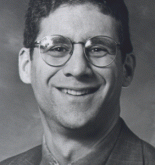The leap of generalization Statistician Andrew Gelman has an interesting blogpost up on what inference in science really means: I like Don Rubin’s take on this, which is that if you want to go from association to causation, state very clearly what the assumptions are for this step to work. The clear statement of these assumptions can be helpful in moving forward … Another way to say this is that all inference is about generalizing from sample to population,...
Read More »Agni Parthene
[embedded content]
Read More »Frank Hahn on the value of equilibrium economics
Frank Hahn on the value of equilibrium economics It cannot be denied that there is something scandalous in the spectacle of so many people refining the analyses of economic states which they give no reason to suppose will ever, or have ever, come about. It probably is also dangerous. Equilibrium economics … is easily convertible into an apologia for existing economic arrangements and it is frequently so converted. Frank Hahn
Read More »Keynes on the methodology of econometrics
Keynes on the methodology of econometrics There is first of all the central question of methodology — the logic of applying the method of multiple correlation to unanalysed economic material, which we know to be non-homogeneous through time. If we are dealing with the action of numerically measurable, independent forces, adequately analysed so that we were dealing with independent atomic factors and between them completely comprehensive, acting with...
Read More »On the irrelevance of mainstream economics
On the irrelevance of mainstream economics There is something about the way mainstream economists construct their models nowadays that obviously doesn’t sit right. One might have hoped that humbled by the manifest failure of its theoretical pretences during the latest economic-financial crises, the one-sided, almost religious, insistence on axiomatic-deductivist modelling as the only scientific activity worthy of pursuing in economics would give way to...
Read More »Ekonomi – vetenskap eller gissningslek?
Ekonomi – vetenskap eller gissningslek? Är nationalekonomi vetenskapligt baserad kunskap? Kan man förutspå hur enskilda individer eller hela samhällen kommer att agera ekonomiskt? Till exempel om miljonbonusar gör toppchefer mer lojala mot de företag som anställt dom? Kan ekonomiska analytiker verkligen se in i framtiden och förutspå kommande kriser? Eller handlar ekonomernas prognoser mer om en kvalificerad gissningslek? Yours truly, Tore Ellingsen, och...
Read More »Economics — where does it lead us?
Economics — where does it lead us? The issue of interpreting economic theory is, in my opinion, the most serious problem now facing economic theorists. The feeling among many of us can be summarized as follows. Economic theory should deal with the real world. It is not a branch of abstract mathematics even though it utilizes mathematical tools. Since it is about the real world, people expect the theory to prove useful in achieving practical goals. But...
Read More »Adorno on pop culture
Adorno on pop culture When Adorno issued his own analyses of pop culture, though, he went off the beam. He was too irritated by the new Olympus of celebrities—and, even more, by the enthusiasm they inspired in younger intellectuals—to give a measured view. In the wake of “The Work of Art,” Adorno published two essays, “On Jazz,” and “On the Fetish Character of Music and the Regression of Listening,” that ignored the particulars of pop sounds and instead...
Read More »Manufacturing strategic ignorance
.[embedded content]
Read More »Say ‘consistent’ one more time and I …
Say ‘consistent’ one more time and I … Being able to model a credible world, a world that somehow could be considered ‘similar’ to the real world is not the same as investigating the real world. The minimalist demand on models in terms of ‘credibility’ and ‘consistency’ has to give away to stronger epistemic demands. Claims in a ‘consistent’ model do not per se give a warrant for exporting the claims to real-world target systems. Questions of external...
Read More » Lars P. Syll
Lars P. Syll






